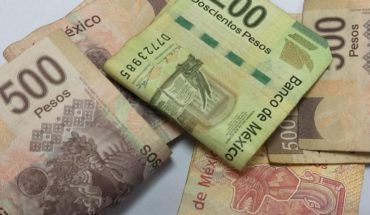The way.- Pasta, white bread, sugary sweets and baked goods. They love Americans, but could all those “refined” carbohydrates and sugars be preventing people from sleeping at night? About 30 percent of Americans suffer from insomnia, and a new study finds that carbohydrate-rich diets could be somewhat to blame. The study noted the fluctuations in blood sugar linked to diet, noted by lead author James Gangwisch, assistant professor of clinical psychiatric social work at Columbia University in New York City.
“Highly refined sugars” (added sugars, soft drinks, white rice, refined wheat flour) have what is known as a high glycemic index, which can trigger a sudden increase in blood sugar.” When blood sugar rises rapidly, the body reacts by releasing insulin, and the resulting reduction in blood sugar can lead to the release of hormones such as adrenaline and cortisol, which can interfere with sleep,” he explained Gangwisch in a press release from the university. The new study focused on more than 50,000 older women who completed “diaries” on food as part of an ongoing study, the Women’s Health Initiative.
The study could not prove a causal relationship, but the Gangwisch team found that postmenopausal women who ate many refined carbohydrates, especially added sugars, were prone to developing insomnia. The higher the glycemic index, which measures the amount of sugar in food, from a woman’s diet, the higher her risk of insomnia, according to the study. This was particularly true when diets included added sugars and processed grains, the study authors said. Moreover, a diet rich in vegetables, fiber and whole fruit was linked to fewer insomnia problems, and better, restful sleep showed the findings. Whole fruits contain sugar, but their fiber prevents increases in blood sugar, Gangwisch explained. “This suggests that the dietary culprit that caused women’s insomnia was highly processed foods containing higher amounts of refined sugars that are not found in foods naturally,” she said.
Illustrative
Although the study focused on older women, researchers believe these findings are likely to apply to men and people of all age groups. Two experts in diabetes and blood sugar control said the findings are not surprising.” Many people are aware that eating sweets will make them feel drowsy or agitated, so if this happens at night it could affect the way they sleep,” said Dr. Gerald Bernstein, program coordinator at the Friedman Diabetes Institute Lenox Hill Hospital in New York City.
Given the pernicious effect of lack of sleep, it may be beneficial to adjust the diet to increase sleep and reduce insomnia.
Dr. Rifka Schulman-Rosenbaum is director of diabetes in patients at Long Island Jewish Medical Center in New Hyde Park, New York. He said the new study “highlights another potential benefit of a healthy diet, beyond the common benefits known, such as weight loss or improving glucose levels.”Could eating healthier way make you sleep better? That’s unclear, Gangwisch noted.” Based on our findings, we would need clinical trials to determine whether a diet intervention, focused on increasing the consumption of whole foods and complex carbohydrates, could be used to prevent and treat insomnia,” he added.





